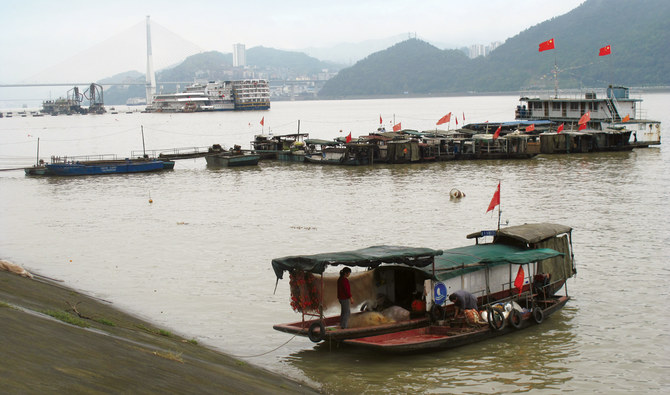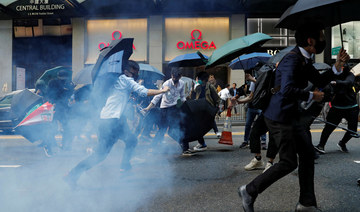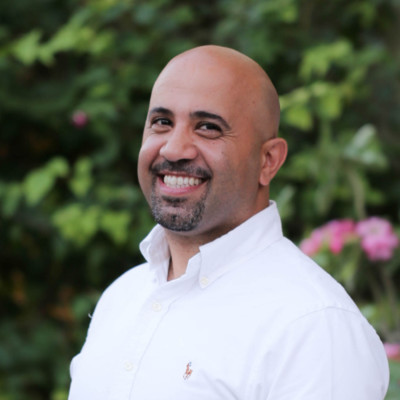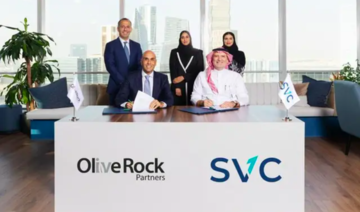CHONGQING: The 2,000 residents of Muhe, whose village was moved to higher ground a decade ago to escape the rising Yangtze river, have tried to make the most of their remaining land by planting orchards of oranges and persimmons along its banks.
With just 110 hectares on the edge of Asia’s longest river, Muhe lost half its territory to make way for the colossal Three Gorges Project, a 185-meter dam and 660-kilometer reservoir designed to control flooding, aid navigation and generate electricity.
Beijing has allocated more than 600 billion yuan ($86 billion) since 2011 to alleviate the dam’s long-term impacts on villages like Muhe and bring the region’s deteriorating environment under “effective control.”
But many problems are unresolved, and the government has promised to spend another 600 billion yuan by 2025, said Xie Deti, a member of the Chongqing delegation of the National People’s Congress who lobbied the government to release more funds in March.
Protecting the Yangtze has become a priority for China after President Xi Jinping promised to end big and “destructive” development along the river, which stretches 6,000 kilometers from Tibet to Shanghai, supplies water to 400 million people and irrigates a quarter of the country’s arable land.
Since Xi’s orders in 2016, local governments have dismantled dams, dredged plastic junk from the water, relocated factories, banned waste discharge and restricted farming and construction all along the river.
“You can say we have undergone earth-shattering changes, especially when it comes to increasing our awareness of environmental protection,” said Liu Jiaqi, Communist Party secretary in Muhe.
But the region has been unable to evade the earth-shattering impact of the dam itself, which sits near two fault lines and has been blamed for a surge in earthquakes and the fragmentation of ecosystems, among myriad other problems.
China’s environment ministry said the region saw as many as 776 earthquakes in 2017, up 60 percent compared with a year earlier, with the highest magnitude at 5.
The total number has risen significantly since the project began, with one study from the China Earthquake Administration showing a 30-fold increase between 2003 and 2009, when the reservoir was filled.
Xie, who is also a professor at Chongqing’s Southwest University, said other challenges include algae blooms caused by fertilizer, and wastewater from tributaries polluting the river.
The government has long insisted the benefits of the dam outweigh the costs and disruptions.
But in 2011, Beijing promised to spend 1,238 billion yuan ($177.24 billion) by 2020 to try to fix them. It pledged to raise living standards, heal the environment and create a long-term mechanism to prevent geological disasters.
But less than half of the money had been spent by the end of last year, said Xie, who told Reuters he had received assurances from Beijing that the rest would come between 2020 and 2025.
So far, farmland has been restored by dredging up submerged soil. Riverbanks have been strengthened and reforested to reduce landslide risks, and “ecological barrier zones” have been built along vulnerable parts of the river.
But one government figure, who did not want to be named because of the sensitivity of the issue, said the additional funding might not be enough to solve long-term problems.
Sediment accumulating near the dam threatens to undermine flood controls. A specialist research team has been examining the problem in the Three Gorges region for more than 30 years and China has built two giant dams upstream to block silt.
The massive reservoir, which absorbs more heat than dry land, has also been blamed for increasing regional temperatures. Warmer water and the fragmentation of habitats have wreaked havoc on local fish stocks, with the Yangtze sturgeon close to extinction.
HIGHLIGHT
• China to spend extra $86 billion to fix Three Gorges.
• Giant dam hindering Xi’s Yangtze cleanup goals.
• Earthquakes in region surged 60% in 2017.
• Algae, landslides, silt still posing problems.
The dam has also caused water levels to dwindle at Poyang lake, a habitat for the critically endangered Yangtze finless porpoise.
Since the dam was built in 2006, some leaders have distanced themselves from the project. Wen Jiabao, premier from 2003 to 2012, openly criticized how it was built and castigated officials for failing to take care of more than a million displaced residents. During his visit to the Three Gorges last April, President Xi berated officials for failing to clean up the “grim” environment of the Yangtze, and reiterated his pledge to end “big construction” on the river.
But Xi also described the dam as a testament to China’s talent and self-reliance, saying it made him proud of its staff and his country.
“The issue is obviously very complicated, and it is not black and white,” said Ma Jun, founder of the Institute of Public and Environmental Affairs, a non-governmental organization in China that tracks water pollution.
“It does have both flood control and power generation functions, but on the other hand, whether the cost is too high, whether there are alternatives, I think those are what we need to study,” Ma added. “For good or bad, the heyday of dams has passed.”

























